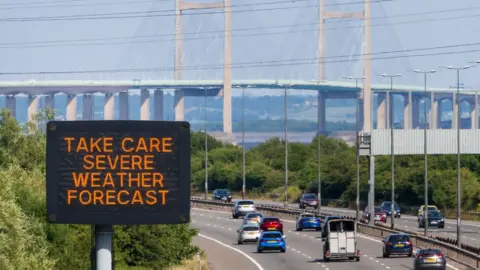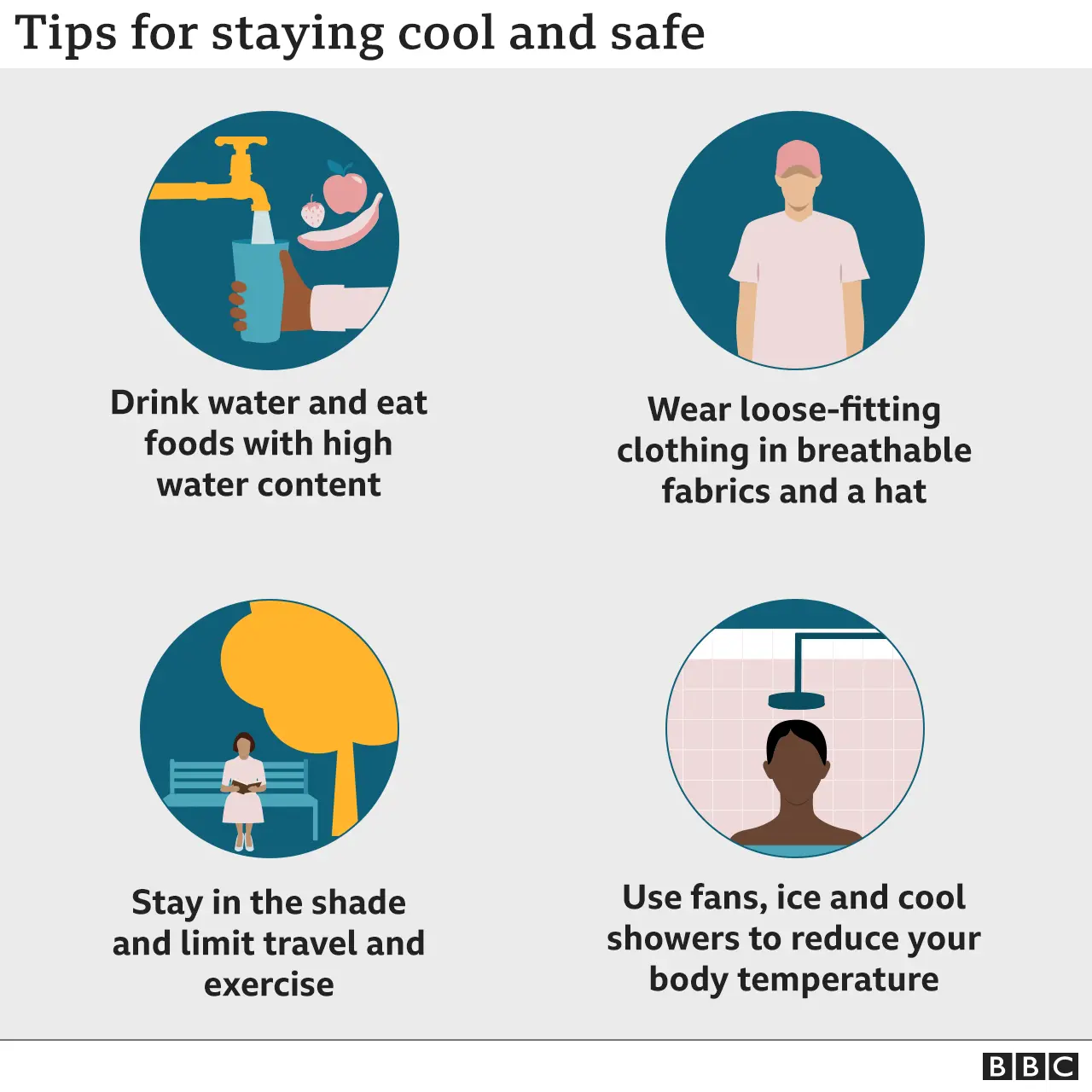Heatwave: 999 calls for eating raw chicken and earache
 Matthew Horwood/Getty Images
Matthew Horwood/Getty ImagesEating raw chicken, laundry detergent in an eye and a swollen finger were the reasons behind some of the unnecessary 999 calls made during the heatwave.
Welsh Ambulance Service Trust (WAST) received more than 19,500 calls in the fortnight between 4-18 July.
Of those, a fifth were found to be non-essential, the trust said, including 16 hoax calls.
The trust is urging people to use the 999 service "appropriately" and follow advice during warm temperatures.
Emergency services said they faced "extreme pressures" as Wales sweltered in record-breaking temperatures, and services continue to deal with staff shortages due to Covid-19.
Wales had its hottest day ever recorded on Monday with the mercury hitting 37.1C in Hawarden, Flintshire, while the following day proved to be the second warmest on record.
Breathing problems were the leading cause of emergency ambulance calls on Tuesday, while calls to people with heat exposure and drownings also increased.
However among the "ill-judged" 999 calls were also a person with earache and another whose tooth had fallen out. Among the hoax calls was from someone claiming a dog had been stabbed.
'Frankly appalling'
"Our ambulance service exists to help people who are seriously ill or injured or where there is an immediate threat to their life, so time spent dealing with non-essential calls could be time spent helping someone in a life or death situation," said Lee Brooks, the trust's executive director of operations.
"People with earache and swollen fingers still have a clinical need, but calling 999 for that need is ill-judged when there are so many other ways to access more appropriate help.
"Hoax calls are a different story altogether because it's someone who's gone to deliberate lengths to waste our time, which is frankly appalling."


Ambulance chiefs have warned people not to underestimate the heat and said there is still a "very real danger," especially for those with asthma or angina, even if temperatures drop slightly this week.
"We're not out of the woods just yet," said Mr Brooks.
"Ultimately, we want everyone to enjoy the warm spell, but please do so sensibly and mindfully to avoid a call to 999."
